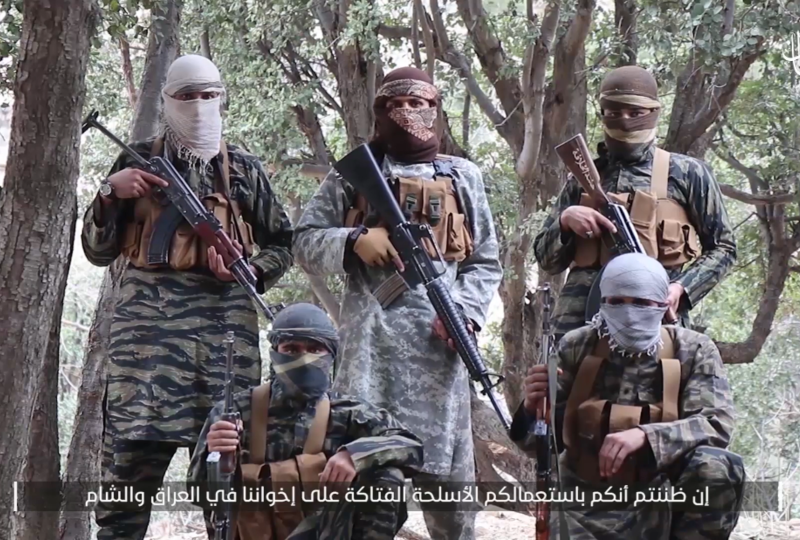
by Zafar Yousafzai 20 April 2023
The presence of Islamic State Khorasan Province (ISKP) in Afghanistan poses a significant threat not only to Afghanistan but also to the entire region’s security, stability, and economy. ISKP has a history of violence and extremism and can cause severe damage to the region’s social fabric, infrastructure, and economic growth. Recent reports by the United States and ongoing military operations against ISKP in Afghanistan contradict the claims by the Acting Afghan Foreign Minister that there are no opposition groups or Daesh in Afghanistan.
The international community has become increasingly alarmed at the deteriorating security situation in Afghanistan, and the continued presence of terrorist groups like ISKP and the resurgence of the TTP is a significant concern. These groups pose a grave threat to the peace and stability of the region, and there is a growing consensus that the international community needs to take urgent action to address the problem.
One of the major challenges in dealing with the threat of terrorism in Afghanistan is the complex web of political and social factors that contribute to the problem. Afghanistan has been in a state of conflict for decades, and the country’s security situation remains fragile. There are deep-seated ethnic, tribal, and political divisions in the country that have been exploited by terrorist groups to further their agenda. Additionally, Afghanistan’s porous borders and weak governance structures have made it a haven for terrorist groups seeking to establish operational bases.
The situation in Afghanistan has been further complicated by the withdrawal of US troops from the country. The decision to withdraw troops was made in response to the Doha agreement signed between the US and the Taliban in February 2020. Under the agreement, the US committed to withdrawing all its troops from Afghanistan, provided the Taliban agreed to certain conditions, including cutting ties with terrorist groups like Al-Qaeda. However, the withdrawal of US troops has left a security vacuum in Afghanistan that terrorist groups like ISKP and the TTP have sought to exploit. In recent months, there has been an upswing in violence and attacks by these groups, and the situation is rapidly deteriorating.
The Taliban government has been taking steps to address the threat posed by terrorist groups. The General Directorate of Intelligence (GDI) has been conducting ongoing military operations against ISKP in Afghanistan, resulting in the arrest of several militants and the killing of key commanders. Additionally, the Afghan Taliban has also claimed to have found millions of dollars at an alleged ISKP hideout in Mazar-e-Sharif, Balkh province. The efforts of Afghan Taliban are a welcoming development, but more needs to be done to address the root causes of terrorism in Afghanistan. A comprehensive approach that includes political, economic, and military components is required to address the issue.
One of the key challenges in dealing with the threat of terrorism in Afghanistan is the lack of effective governance structures in the country. Previously, there was widespread corruption, and the government’s ability to provide basic services and security to its citizens was limited. The lack of effective governance has created a fertile ground for the growth of extremist ideologies and the recruitment of individuals into terrorist groups like ISKP.
To address this issue, the international community needs to work with the Taliban government to strengthen governance structures and root out corruption. The international community can provide technical and financial assistance to help the Taliban government implement reforms and build institutions that are transparent and accountable. Another important component of a comprehensive approach to counter-terrorism in Afghanistan is addressing the economic root causes of terrorism.
Poverty and unemployment are widespread in Afghanistan, and these conditions are exploited by terrorist groups to recruit individuals into their ranks. To address this issue, the international community needs to invest in programs that create jobs and promote economic growth in Afghanistan. The international community can also work with the Afghan government to improve education and promote tolerance and respect for diversity. Extremist ideologies thrive in environments where there is a lack of education and tolerance, and promoting these values can help counter the spread of extremism in Afghanistan.
Finally, there is a need for a coordinated and multilateral approach to address the threat of terrorism in Afghanistan. The international community needs to work together to share intelligence, resources, and expertise to identify and disrupt terrorist networks. This includes working closely with bordering states, such as Pakistan, Iran, and Uzbekistan, to secure Afghanistan’s borders and prevent the flow of weapons, fighters, and resources to terrorist groups.
The active presence of ISKP in Afghanistan poses a significant regional threat to the security, stability, and economy of the entire region. The ongoing military operations against ISKP in Afghanistan and the recent claims by the Afghan Taliban about the discovery of millions of dollars at an alleged ISKP hideout are undeniable proof of the presence of terrorist groups’ operational bases in Afghanistan. The Afghan government and the international community need to take urgent action to address the root causes of terrorism in Afghanistan and promote peace and stability in the region. A comprehensive approach that includes political, economic, and military components is required to counter the threat of terrorism in Afghanistan. The international community needs to work together to address the issue and prevent Afghanistan from becoming a hotbed of terrorism.



0 Comments
LEAVE A COMMENT
Your email address will not be published